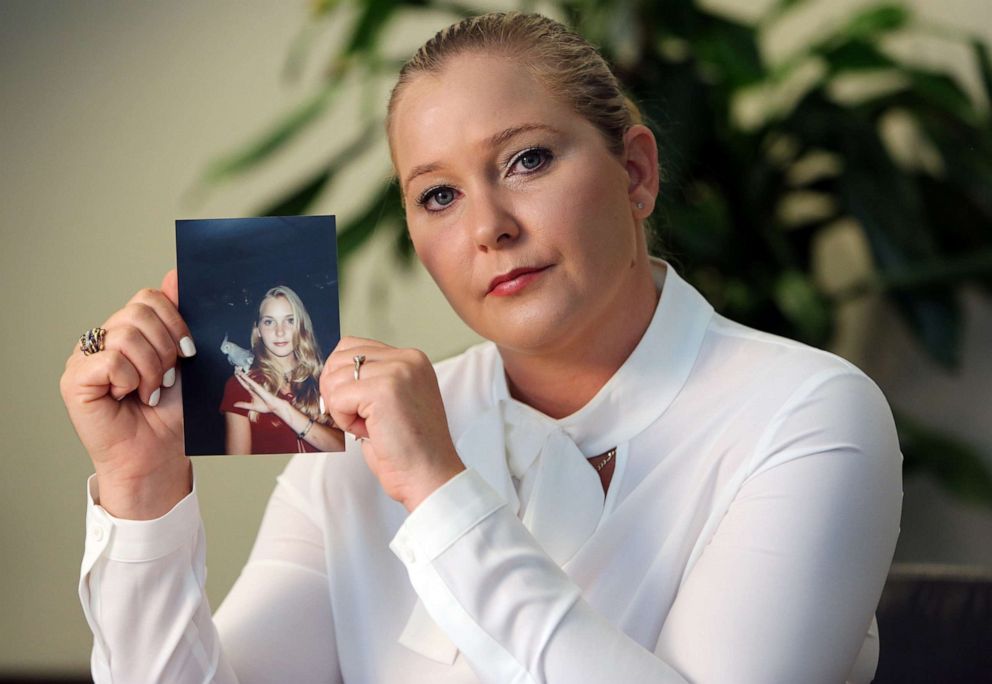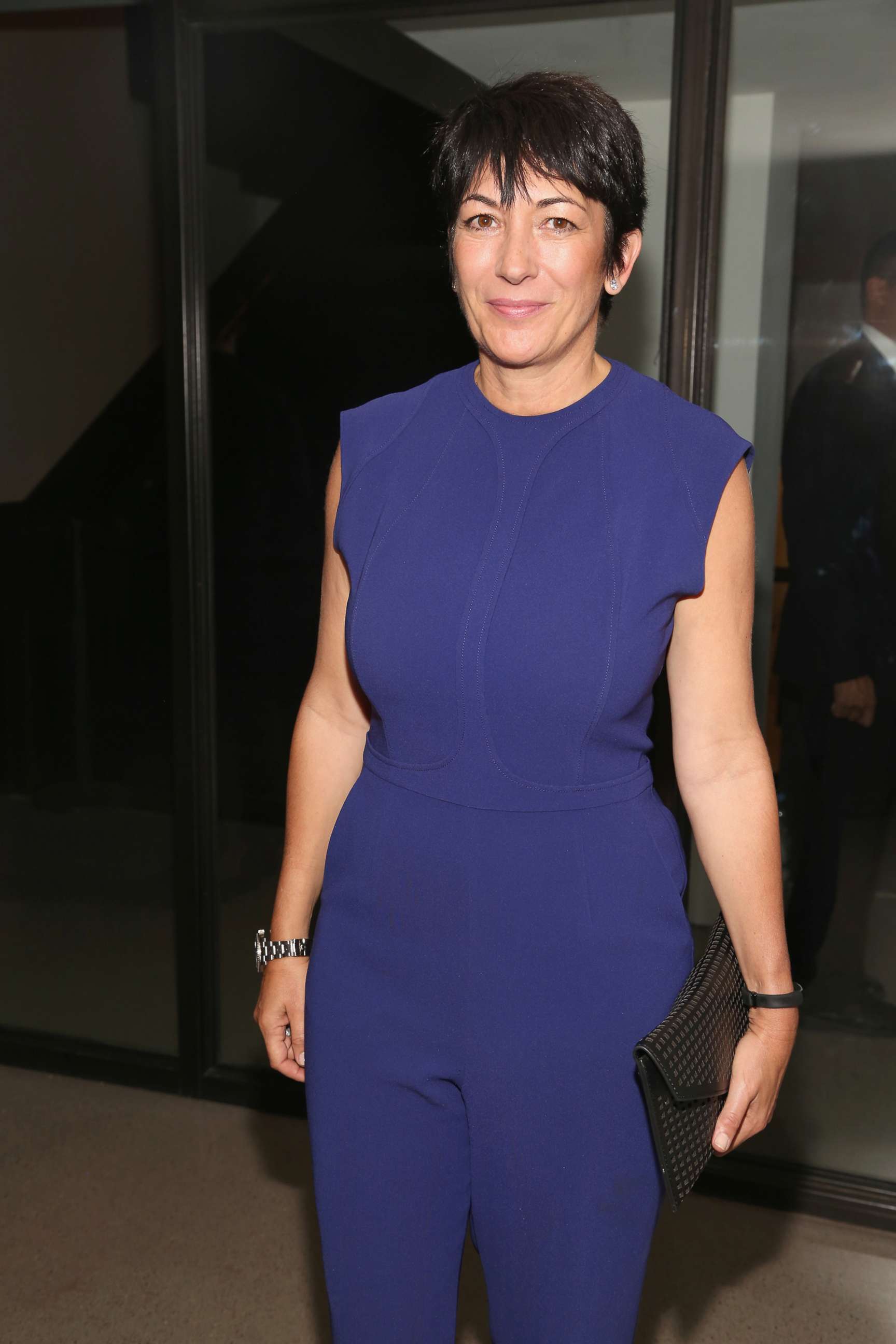5 years after Jeffrey Epstein's arrest, push for accountability continues
In the five years since sex offender Jeffrey Epstein first walked into a 23rd-floor courtroom in Manhattan -- shackled and dressed in navy blue prison garb -- his victims have hastened the public downfalls of a British prince and other prominent men, provided key testimony that led to the imprisonment of two alleged accomplices, and reached out-of-court settlements totaling more than half a billion dollars.
Yet, many of the survivors of Epstein's decades-long sex trafficking scheme are pressing on. They continue to push forward in quests for justice, transparency and accountability from institutions and individuals who allegedly aided, enabled or turned a blind eye to the late financier's criminal behavior.
In the first half of 2024 alone, lawsuits on behalf of Epstein's victims have been filed against the Federal Bureau of Investigation, current and former government officials in the U.S. Virgin Islands, Epstein's former lawyer, his longtime accountant and a renowned psychiatrist accused of involvement in the sex-trafficking operation.
"I think that their story is not over," said Sigrid McCawley, a lawyer who has spent over a decade advocating for Epstein's victims. "There were so many people involved. And it's remarkable that there was so much facilitation of this trafficking operation by many individuals."
All of those accused in the recent litigation -- including the USVI officials, the lawyer, the accountant and the psychiatrist -- have denied the allegations against them.
McCawley, along with other victims' rights lawyers, has represented hundreds of survivors of Epstein's abuse in both criminal and civil actions over the past decade. Her first client was Virginia Roberts Giuffre, whose allegations of sexual abuse in 2014 court filings -- against Epstein, Ghislaine Maxwell, Prince Andrew and a host of other well-known men -- ignited a firestorm of news coverage that served as a catalyst to almost everything Epstein-related that transpired over the next decade.

Suddenly, Epstein's lenient treatment by authorities in Florida years earlier and his proximity to powerful people were under renewed scrutiny by civil attorneys, journalists and law enforcement.
"When I first sat in a room with [Virginia], it was almost an entire day. And I said, 'What is it that you want me to help you with? How can I help you?' And she said, 'I want Epstein and Maxwell to pay for their crimes. I want them to be in prison,'" said McCawley, a managing partner at the law firm Boies Schiller Flexner.
Giuffre's civil lawsuit against Maxwell filed in 2015 and settled two years later, served as a sort of dry run for Maxwell's criminal prosecution in 2021. Giuffre alleged that Maxwell -- the socialite daughter of British publishing tycoon Robert Maxwell -- had for years enabled and participated in Epstein's abuse. Federal prosecutors secretly subpoenaed the sealed records of the case and later called as witnesses at Maxwell's trial several of the women who were set to testify in the civil dispute.

Maxwell was convicted on five of six counts related to the abuse and trafficking of underage girls and sentenced to 20 years in prison. She is appealing her conviction.
A 'big spiraling ride'
Among the witnesses against Maxwell was Annie Farmer, who said she was lured by Maxwell and Epstein and sexually abused at his New Mexico ranch when she was just 16 years old. Farmer was also one of just two of Epstein's victims to have the opportunity to confront him at his detention hearing in July 2019. Less than a month later, Epstein was dead. His death was ruled by the New York City Medical Examiner as a suicide by hanging, but widespread skepticism of the official account abounds to this day.
Farmer said in an interview this month that attending Epstein's hearing five years ago was like the beginning of a "big spiraling ride."
"And I feel like I haven't gotten off," she said. "I didn't anticipate what it would mean to speak at the hearing in terms of the attention that would come with that. And I don't think anyone can really anticipate the way that the news story would take off and take on a life of its own."
Farmer's older sister, Maria, was the first person to report Epstein and Maxwell to law enforcement authorities in 1996, but no action was taken. Both sisters also spoke to the FBI in 2006 when federal prosecutors identified at least three dozen alleged victims of Epstein's sexual abuse. But then the government made the infamous "sweetheart deal" with Epstein that allowed him to plead to two relatively minor charges in state court. He served just 13 months of an 18-month sentence, with liberal work release privileges that allowed him to spend up to 16 hours a day at his office in West Palm Beach.
Maria Farmer has been pressing for years for the FBI to release records of her initial contact with the agency in 1996.
Epstein's '1953 Trust'
Epstein's death in 2019 set off a frenzy of activity by victims' advocates in courts from New York to Florida to the U.S. Virgin Islands, where Epstein owned a private island estate. Two days before his death, Epstein amended his will, transferring all the assets of his estate -- valued at more than $650 million -- to a cryptic entity he called "the 1953 Trust," apparently named after the year he was born. The beneficiaries of the trust have not been identified.
Epstein named as co-executors of his estate Darren Indyke and Richard Kahn, his longtime attorney and accountant. Lawyers for the pair hashed out an agreement with attorneys for the victims to create the "Epstein Victims Compensation Fund," a voluntary restitution program modeled after similar complex claims for multiple victims of 9/11 and clergy abuse in the Catholic Church. The program ended its operations in August 2021, having paid out more than $120 million to 136 survivors of Epstein's sex trafficking network. Another 52 women filed and privately settled claims outside of the compensation fund, according to court records.
To fund the claims program and to pay other creditors, the co-executors of the estate sold most of Epstein's assets, including the Gulfstream jet that carried him from Paris to Teterboro airport in New Jersey on the day of his arrest.
They also sold his multimillion-dollar mansions in Florida and New York, his apartment in central Paris, and his two private islands off the east coast of St. Thomas, where much of the alleged abuse of children and young women is alleged to have taken place. Epstein's New Mexico ranch, the last of the estate's major real estate assets, was sold in August.

Epstein's estate is still under probate court supervision in the U.S. Virgin Islands. None of the unknown beneficiaries of the 1953 Trust can receive benefits until all creditors are paid and all claims against the estate have been exhausted. With just a handful of lawsuits still active, the estate still holds assets of more than $84 million with liabilities of about $30 million, according to the most recent accounting statement filed in court in St. Thomas.
Survivors of Epstein's sex-trafficking have also sought accountability from the financial institutions that held Epstein's vast fortunes and allegedly ignored red flags that should have alerted the banks and government authorities of criminal activity.
JPMorgan Chase and Deutsche Bank each settled lawsuits brought by the survivors, for $290 million and $75 million, respectively, with no admission of wrongdoing. JPM Chase paid another $75 million to the USVI government and Deutsche Bank agreed to pay $150 million in penalties following an investigation by New York state financial regulators.
"It really woke up the financial institutions to the fact that they can no longer turn a blind eye when they're seeing these red flags in their institutions," McCawley said.
Private settlement with a prince
Perhaps no ripple effect of Epstein's sex-trafficking network has received more attention than the allegations leveled by Giuffre against Prince Andrew, who lost his military titles and royal patronages after his failed attempt to have Giuffre's lawsuit against him dismissed. The prince's 2019 BBC interview -- in which he claimed not to recall ever meeting Giuffre -- was widely assailed as tone-deaf and ineffectual. The prince privately settled the lawsuit in 2022 for an undisclosed sum.
As part of the agreement the Prince said he would "make a substantial donation to Ms. Giuffre's charity in support of victims' rights,'' according to a letter filed with the court.
"Prince Andrew has never intended to malign Ms. Giuffre's character, and he accepts that she has suffered both as an established victim of abuse and as a result of unfair public attacks," the letter said. "It is known that Jeffrey Epstein trafficked countless young girls over many years. Prince Andrew regrets his association with Epstein, and commends the bravery of Ms. Giuffre and other survivors in standing up for themselves and others."
Expressing regret for ever meeting or associating with Epstein became a common refrain for many whose names appeared in his address book or on flight logs of his private jet or whose business or academic dealings with Epstein were disclosed by journalists and victims' lawyers.
The long list of the remorseful includes prominent figures like Leslie Wexner, the founder of The Limited Company, billionaire private equity investor Leon Black and many more. All denied any knowledge or participation in Epstein's illicit activities.
Several prestigious universities - including Harvard and MIT - issued scathing reports on their associations with Epstein and acceptance of his financial gifts - even after his 2008 guilty plea in Florida for solicitation of a minor into prostitution.
"Going forward, hopefully, we will be in a position where trafficking victims will have some more protections, more people looking out for them and more people doing the right thing, finally," McCawley said.
Annie Farmer said that the widespread recognition of the evils of Epstein's trafficking has made her feel "like it was worthwhile to use my voice to speak out against this."
But the constant stories in the news and on social media over the past five years, she said, have made it very difficult to escape the painful feelings that invariably surface wherever she hears his name.
"It's a cycle where you'll sort of feel like you're moving through it and kind of putting it in the past, but then something new comes up and you feel a little bit of a deja vu in terms of having to look backward," Annie Farmer said. "It's also just really draining."
She said that for all the investigations and examinations of Epstein's operation, there is still so much missing.
"It's not clear to me how he was able to be in the position he was in financially. I think that opened up a lot of the doors for him to commit these crimes," she told ABC News. "And I still don't feel like there's a satisfying answer yet about why my sister's original complaint wasn't followed up on. And what happened in 2006 when they recognized that it was a more systemic situation?"
Some of those answers could lie in still undisclosed records of the FBI, but the government has resisted calls from the victims, members of Congress and the press to make the documents public. Prosecutors cite the potential impact exposure of the records could have on a re-trial of Maxwell, if her appeal is successful.
Last week, a federal judge in New York agreed that the FBI files could be withheld by the agency and dismissed a Freedom of Information Act case first filed in 2017.



